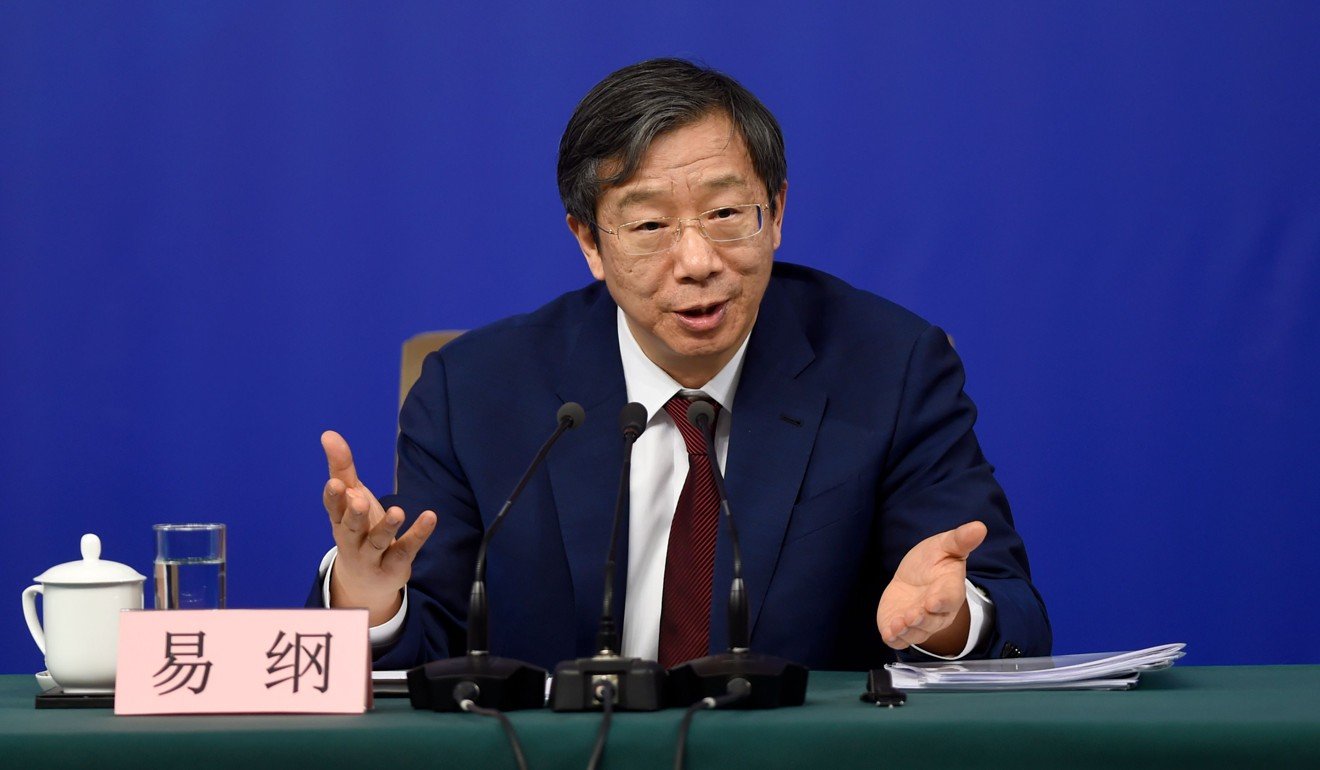
‘China’s Alan Greenspan’ steps down as central bank chief after more than 15 years at the helm
Zhou Xiaochuan’s departure is confirmed as his deputy Yi Gang takes over as head of People’s Bank of China
Zhou Xiaochuan, the governor of China’s central bank for more than 15 years, has officially retired from his office, ending an extraordinary long central banking career in which he became known as “China’s Alan Greenspan”.
Zhou, 70, has been credited for freeing up interest rates at home and earning the yuan a nominal reserve currency status abroad.
But he has also been criticised for allowing the Chinese government’s massive stimulus to create a mountain of debt and for letting financial risks accumulate – leaving a major headache for his successor and the country’s new leadership team.
When China’s National People’s Congress delegates were discussing the new government line-up in Beijing, Zhou was on the other side of the world, attending a Bank of International Settlement conference in Argentina.
At his last press conference as China’s central bank chief earlier this month, Zhou said: “I feel honoured to have worked with all of you to push forward China’s financial reform and opening up. I feel very honoured.”
His former deputy Yi Gang has now been confirmed as the new governor of the People’s Bank of China.

Analysts said Zhou deserved credit for the economic and financial changes that happened during his tenure.
When Zhou first took charge of China’s central bank in late 2002, the size of the country’s economy was just above US$1 trillion and was smaller than Italy’s at the time.
By the time Zhou stepped down, China’s economy has a nominal value above US$12 trillion and appears to be on track to dethrone the US as the world’s biggest economy.
The Chinese yuan was barely recognised beyond the country’s borders 15 years ago, now, although it is still not fully convertible, it is widely accepted by retailers across East Asia from Singapore to Seoul.
“Zhou Xiaochuan should be remembered for his contribution to the yuan’s rising global clout,” said Sun Lijian, a professor of international finance at the Fudan University in Shanghai.
“At the same time, many of the schemes to open up the economy under Zhou have not been completed and it’s a natural choice for Beijing to pick up Yi as his successor to complete many of the reforms.”
The official appointment of Yi as Zhou’s successor also put a formal end to one of the most widely debated questions of the past decade.
Reuters, Bloomberg, The New York Times, The Wall Street Journal and the South China Morning Post have all previously discussed the possibility of Zhou’s retirement and his likely replacement.
Under Zhou’s tenure China has recapitalised its state banks, lifted direct state control of interest rates, and dropped the yuan’s peg to the dollar for a “managed floating yuan exchange rate system”.
However, China’s banking system and financial world remained largely closed – capital account controls are still in place, the presence of foreign banks remains marginal and the state still has a heavy influence in the market.
For instance, the yuan still trades within a narrow range of the US dollar because of the heavy influence of the central bank.

It is also under Zhou’s watch that debt in the Chinese economy has expanded to 260 per cent of GDP, an astonishing change that could trigger a debt crisis.
While it is unfair to blame Zhou solely for the debt pile-up because the bank has to do what the central government tells it to do, Zhou is not completely blameless, according to Chen Long, an economist at Gavekal Dragnomics, a research firm in Beijing.
“Zhou and the PBOC do bear some responsibility. The central bank has discretion in how it sets monetary policy to fulfil government goals, and it should be held accountable for at least some of the consequences,” Chen wrote in a note.
Zhou argued in a speech to the International Monetary Fund in 2016 that China’s central bank was operating in a much more complicated economic and institutional environment than those in mature market economies.
He said that he had to find a balance between different and sometimes conflicting targets that were included in the country’s central bank law – full employment, stable growth, low inflation and balanced international payments.
Zhou, who holds a doctoral degree in engineering from Tsinghua University, speaks like a university lecturer instead of a Communist Party cadre.
His style has prompted comparisons with Greenspan, who ran the US Federal Reserve for 18 years and once said: “I guess I should warn you, if I turn out to be particularly clear, you’ve probably misunderstood what I said.”
Zhou’s public speeches are often dotted with academic terms and try to set out his reasoning rather than provide answers to specific questions.
“Zhou speaks at internal lectures exactly like he would speak in a classroom. Senior central bank cadres sit there like students, trying to follow his thinking,” according to one source who has attended some of Zhou’s lectures.

